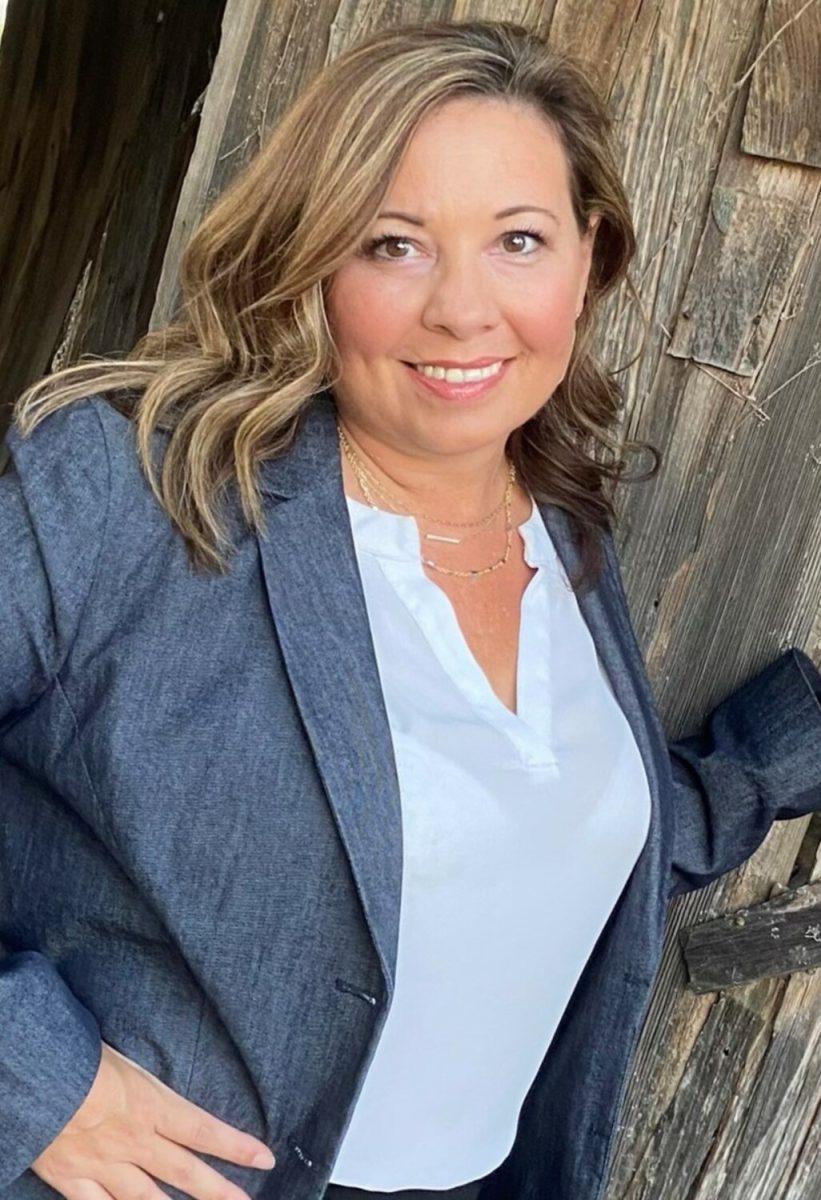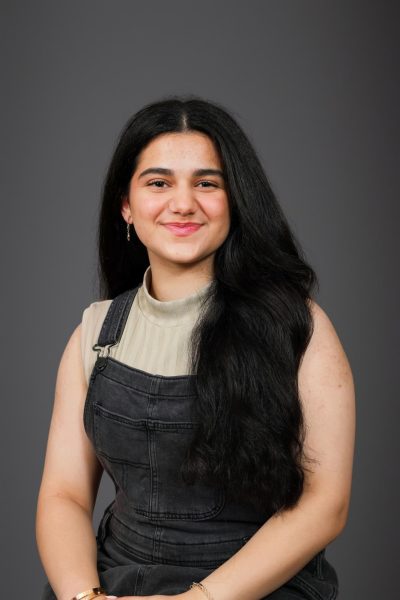Q: So why are you running for the school board?
A: Well, I have three kids that have gone through the district. Oldest graduated two years ago and I have a senior and then I have one that’s in seventh grade and we all experienced Leander ISD in different degrees and two had the opportunity to experience designation district. Things have changed in the past few years and we’ve shifted away from students, and I pulled my youngest daughter out of public school and I put her in a charter. And I just think that I’d really like to see the district shift back to being academically focused and transparent, welcoming to parents and respecting program rights. And I think I can help make that change.
Q: What past experiences make you qualified to be a school board member?
A: So I’ve been following what’s been going on in the district for a few years and I ran for school board two years ago and I’ve nearly lost, and I’ve continued to watch school meetings and I’ve gone to a few, have spoken as well and just reviewing policies, reviewing the finances to understand what’s going on. So it’s been a lot of time and dedication to that.
Q: Are you satisfied with Dr. Gearing’s job as superintendent? Why or why not?
A: So I think that there’s plenty of for improvement there and that would be one of my goals. If I were elected, in 2018 we were still what would be considered a fast-growth destination district. And Dr. Gearing was brought in 2019 and there’s been a lot a lot of things that have changed. In fact, we’re no longer a fast growth. We’ve only had an 8% increase in enrollment since 2018. That is not fast growth at all.
Q: What do you believe is the biggest challenge facing students today?
A: Well, there are a lot of challenges that our kids are facing. I think from my perspective, the biggest concern is not having access to a rigorous curriculum. And that’s been one of my driving points whenever I speak to anyone it’s just the academic decline because this has a lot of potential to affect kids later on. And for two years in a row, I don’t think at the high school level, yall do the MAPS assessments younger, but the district has presented the maths results two years in a row where math, the kids at the beginning of the year, middle of the year, end of the year, they perform better at the beginning of the year than they do at the end of the year. And so this is across from kindergarten to eighth grade. And so, you know, not providing these kids with solid math foundation or reading foundation is going to have huge implications for them later on.
Q: So do you believe LISD sufficiently addresses those challenges?
A: No, I do not. And that’s a big reason why I’m running. These reports, these graphs have been presented to the school board, like I said two years in a row and I feel like any reasonable irrational person would hit the pause button and say something is going wrong here, we need to stop this, we need to work this course. And no one has.
Q: In your mind, what’s the ideal takeaway you want for a Leander ISD graduate?
A: To be a successful and productive citizen.
Q: So you mentioned that you had, your older kids were previously enrolled in the district and then your younger switched to a private school. What kind of experiences have your kids had with the district and then how do you think that would impact your time on the board should you win?
A: So I have two that are still school-age right now and one is a senior and she’s going to be graduating. Her experience after ninth grade. that was the last year that I let her take LISD. And so we had to pay for her to do outside English and I switched her over to doing dual credit, which is actually been a really good alternative. And working right now ACC still uses textbooks whereas we’ve made a shift too to screen time. And then my youngest, she’s at a classical charter learning from textbook as well and it’s just been a really good move for her.
Q: So LISD has had a long-range planning committee that’s tasked with making recommendations regarding the changing size of the district of facilities and the innovation academy as well. What do you think are the biggest priorities land ID should be considering in terms of this long-range planning?
A: So with the long-range planning committee, I think that we need to go back to the passid data, which is kind of the foundation of what they’re using to make their determinations and that’s the demographer and the growth that they have predicted for the past several years has been way off. We’re not hitting that growth. And so I think that we need to go back to the demographer reports first and make sure that we’re using accurate data to make decisions. Two years ago our community passed a bond. In that bond, there was early childhood Center, there was think that 18 and up facility, and two more elementary schools, it’s almost $250 million in those projects. But currently, once we finally got the actual capacity numbers for the elementary schools, we are sitting with a capacity of 10 elementary schools empty in our buildings. We really didn’t need to build any more buildings. We need it to come up with more creative out-of-the-box solutions than putting the community and y’all could be inheriting this type of debt as well.
Q: And how do you believe Leader ISD should go about facility optimization regarding schools with low enrollment?
A: So I think that we need to have those conversations and we need to bring the community together so that they understand you know, what the enrollment looks like at all of the schools and map that out. Again, it’s going to take creative out-of-the-box solutions and having people come together to come to a consensus. Because I know the thought of closing a school, you know would not appeal to people and I understand that, but at the same time to send the community debt that they’ve been set in, is that really fair either? So I think that it’s just going to take being transparent and having these conversations and people look at other solutions.
Q: Texas has not increased an allotment since 2019. And many districts say that the state is not fully funding public education. What is your view and should anything be done to increase public school funding?
A: Yeah, so I’ve, I’ve looked at the finances and just this last you know budget, both buckets of money. It’s over an 80% increase from 2018. And again, we’re sitting at 8% growth and enrollment. And when I just looked at the salary data, because the salary data makes up 87 8% of the M&O bucket, there’s only been a 27% increase for school salaries. You know, your principal and the teachers. And that’s including opening up six additional schools. However, all other departments, including administration have grown 126% in that time. We’re not applying our funds to the classrooms, to the schools, we’re not supporting the teachers.
Q: During the summer, it was announced that Leander was facing a roughly $13 million deficit. What do you attribute to that deficit, and how do you believe that to be addressed?
A: So based off of what I’ve seen in reviewing the finances, I think that we need to do an audit of school finances. Again, the budget has grown tremendously you know, outpacing with anything reasonable compared to the enrollment and something we need to understand is where that money’s been applied and is that money impacting students is does it helps out academically. How is it servicing the community by being more strategic and prioritize those funds back to our classrooms?
Q: There has been growing polarization and tension among school boards across the country, and we have even seen some tension in our own board. How do you see yourself working with board members you may disagree with?
A: So I understand that and I probably do have different beliefs than some of the other current board members but I am a person and I know how to conduct myself really I also in my regular job negotiate. And so I think that I would be able to use some of those skills just to have the conversations that we need to have.
Q: In the last two years, election integrity has become a hot topic in politics. Do you believe there’s a problem with our election system locally, or nationally?
A: I think as long as we have the machines that there’s going to be questions about that. I don’t really watch TV anymore. I get a lot my information through other channels, a lot through Twitter especially. And there is a lot of talks and discussions that machines are hackable, there’s no lot of reporting on that from different places. And so I do think that there are some questions. I know here locally I believe that we moved to sequentially numbered ballots for Williamson County and so I’m hoping that that makes things a little bit more secure year.
Q: Would you accept the outcome of the election if you lose?
A: Yes, of course.
Q: Is there anything else you want to add?
A: That’s it.
Q: And then lastly, what is your favorite high memory?
A: So I grew up in West Texas. I went to high school and in ninth grade we went out to, it was called Pre Ranch. They took us all for three days and it was a bonding experience for riding horses. It’s surprising that I’m bringing this up to everyone because it was actually terrifying. My horse kept biting everyone else. But anyway, overall it was a great experience, kept my classmates and teachers.

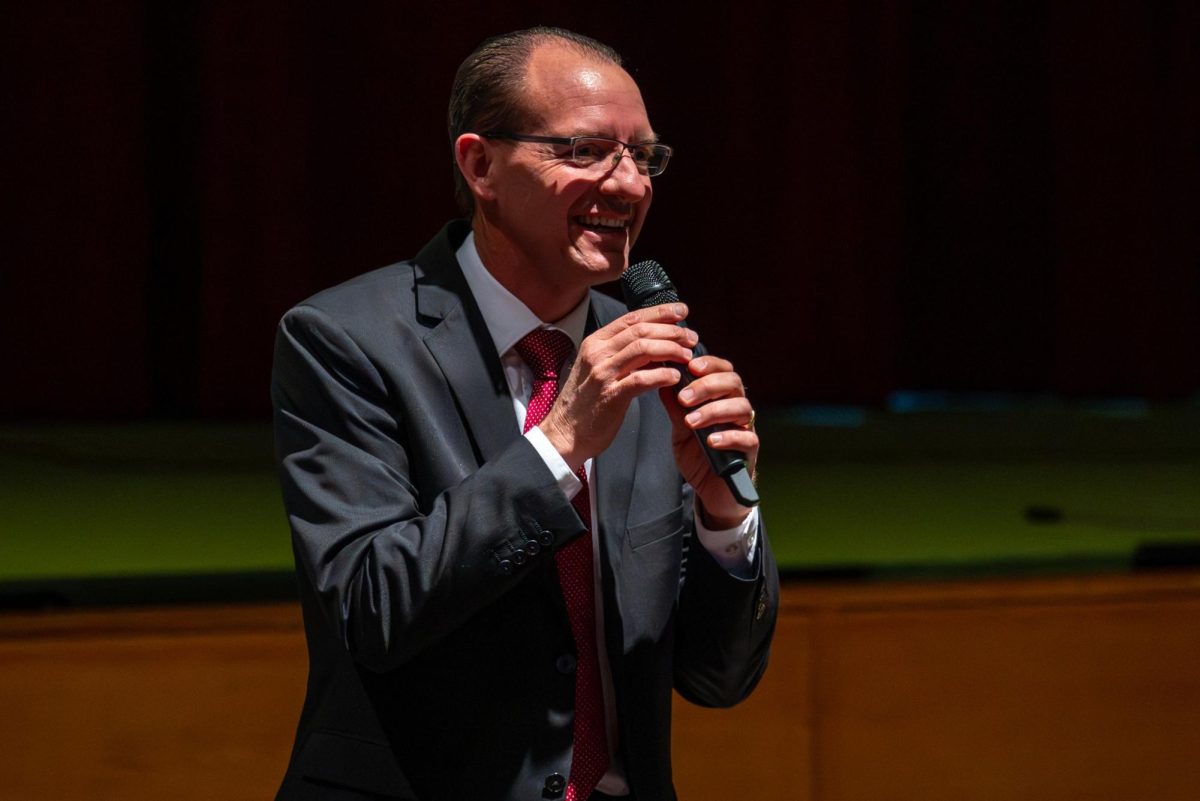
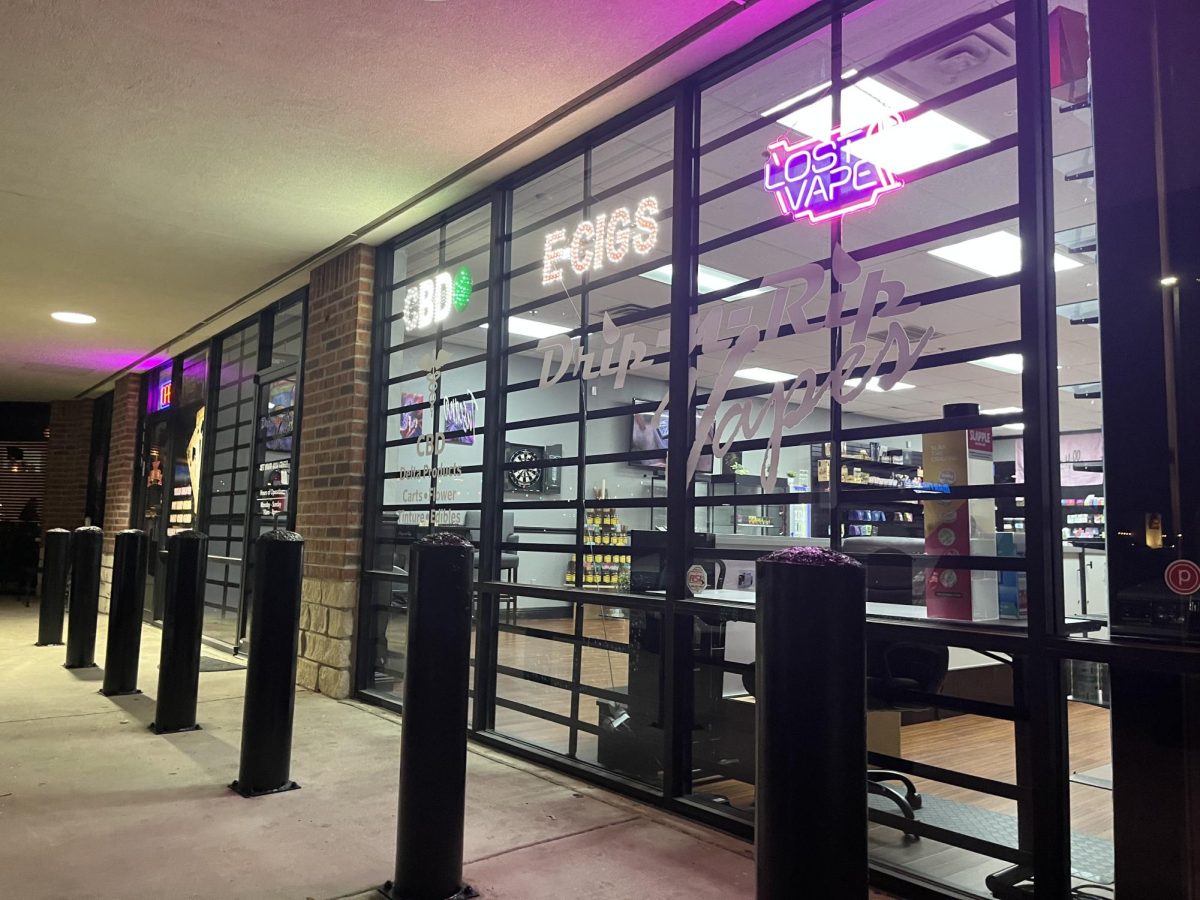

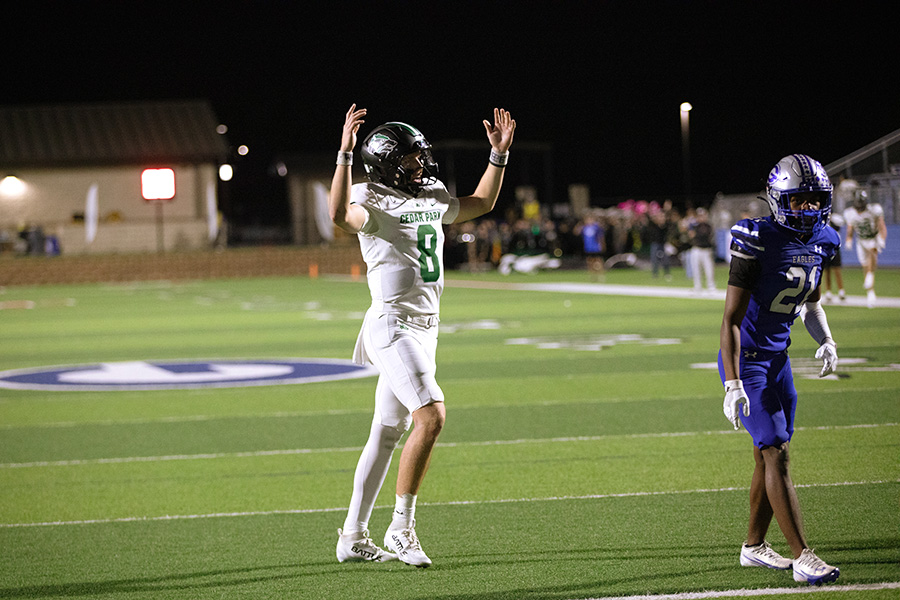

![Senior Jett Mckinney stores all the clothes in his own room, with half of it stored in his closet along with his personal clothes, and the rest taking up space in his room.
“There’s been times [when] there’s so much clothing stored here and it gets overwhelming, so I end up having to sleep somewhere else in the house,” Mckinney said.](https://cphswolfpack.com/wp-content/uploads/2025/11/DSC_0951-1200x800.jpg)



![Broadcast, yearbook and newspaper combined for 66 Interscholastic League Press Conference awards this year. Yearbook won 43, newspaper won 14 and broadcast took home nine. “I think [the ILPC awards] are a great way to give the kids some acknowledgement for all of their hard work,” newspaper and yearbook adviser Paige Hert said. “They typically spend the year covering everyone else’s big moments, so it’s really cool for them to be celebrated so many times and in so many different ways.”](https://cphswolfpack.com/wp-content/uploads/2025/05/edited-ILPC.jpg)




![Looking down at his racket, junior Hasun Nguyen hits the green tennis ball. Hasun has played tennis since he was 9 years old, and he is on the varsity team. "I feel like it’s not really appreciated in America as much, but [tennis] is a really competitive and mentally challenging sport,” Nguyen said. “I’m really level-headed and can keep my cool during a match, and that helps me play a bit better under pressure.” Photo by Kyra Cox](https://cphswolfpack.com/wp-content/uploads/2025/09/hasun.jpg)

![Bringing her arm over her head and taking a quick breath, junior Lauren Lucas swims the final laps of the 500 freestyle at the regionals swimming competition on date. Lucas broke the school’s 18-year-old record for the 500 freestyle at regionals and again at state with a time of 4:58.63. “I’d had my eye on that 500 record since my freshman year, so I was really excited to see if I could get it at regionals or districts,” Lucas said. “ State is always a really fun experience and medaling for the first time was really great. It was a very very tight race, [so] I was a bit surprised [that I medaled]. [There were] a lot of fast girls at the meet in general, [and] it was like a dogfight back and forth, back and forth.” Photo by Kaydence Wilkinson](https://cphswolfpack.com/wp-content/uploads/2025/03/Kaydence-2.7-23-edit-2.jpg)
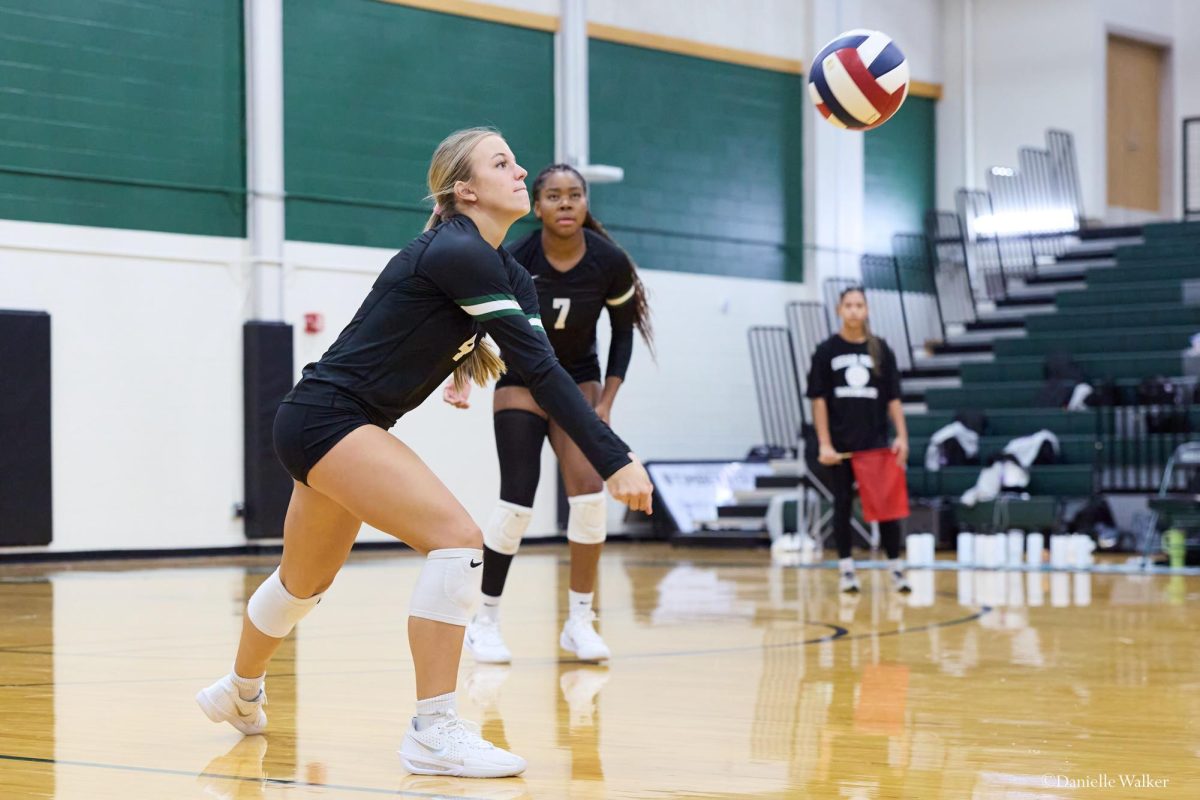

![As her hair blows in the wind, senior Brianna Grandow runs the varsity girls 5K at the cross country district meet last Thursday. Grandow finished fourth in the event and led the varsity girls to regionals with a third place placement as a team. “I’m very excited [to go to regionals],” Grandow said. “I’m excited to race in Corpus Christi, and we get to go to the beach, so that’s really awesome.” Photo by Addison Bruce](https://cphswolfpack.com/wp-content/uploads/2025/10/brianna.jpg)















